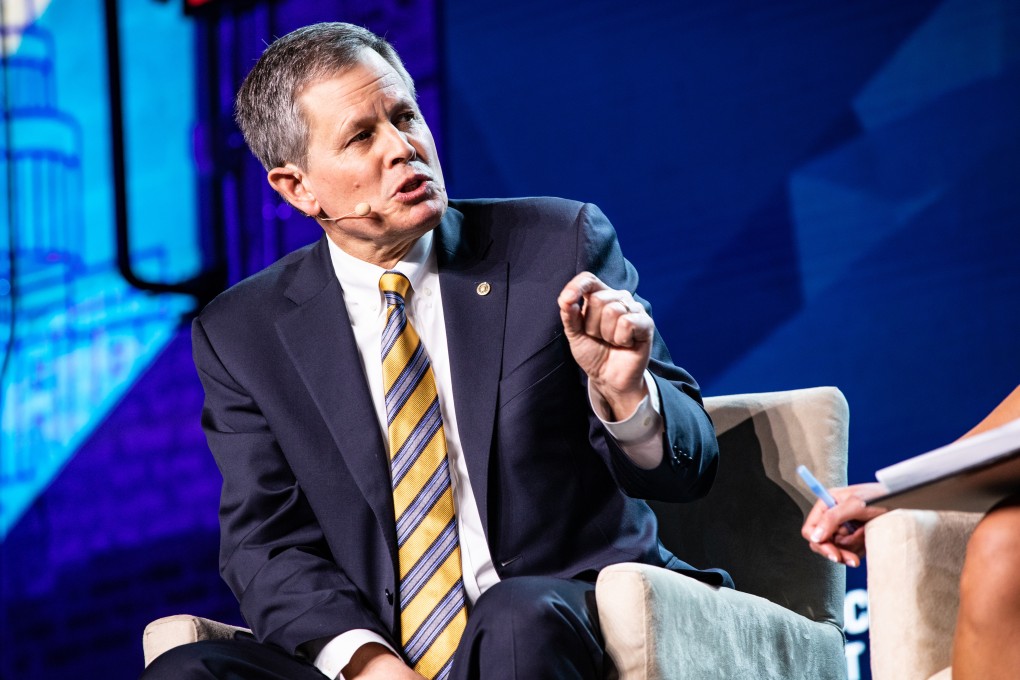Advertisement
US senator questions whether HSBC was pressured to suspend banker over controversial climate-change comments
- Republican Steve Daines slams bank for ‘woke’ suspension of senior asset manager who downplayed climate change risks
- Daines accused the financial industry of falling prey to ‘groupthink’ on climate change in a letter to CEO Noel Quinn
Reading Time:2 minutes
Why you can trust SCMP
1

Chad Brayin London
A US senator has questioned whether HSBC faced outside pressure to suspend a top banker in its asset management business over controversial comments the lender said were “inconsistent” with its strategy on climate change and the views of its senior management.
Stuart Kirk, the global head of responsible investing at HSBC Asset Management, was suspended in May after critical comments he made at a Financial Times conference about the emphasis the financial industry and central bankers were placing on the financial risks of environmental change, saying “there’s always some nut job telling me about the end of the world”.
Steve Daines, a Montana Republican and member of the Senate banking committee, criticised the suspension as “woke” and questioned whether BlackRock, one of HSBC’s largest shareholders and the world’s biggest asset manager, or other parties had pushed the bank to suspend Kirk.
Advertisement
“I am concerned that this episode may involve breaches of United States law, or indicate that you and the financial industry are falling prey to the same groupthink that led to the 2008 financial crisis,” Daines said in a letter to HSBC boss Noel Quinn.
Daines, whose state relies heavily on income from fossil fuels, has previously said the “jury’s still out” on climate change and accused BlackRock and HSBC of promoting “extreme environmental ideology” through their businesses.
Advertisement
BlackRock and HSBC declined to comment.
Advertisement
Select Voice
Select Speed
1.00x
